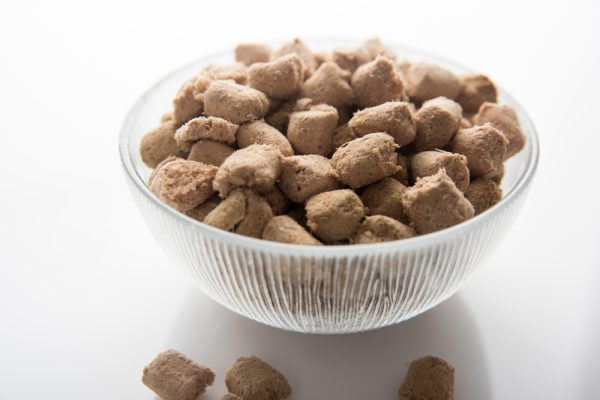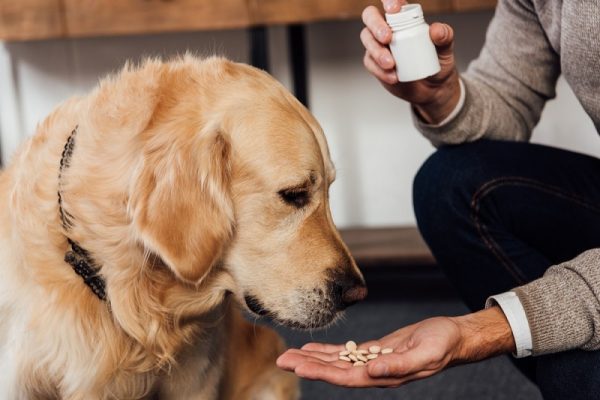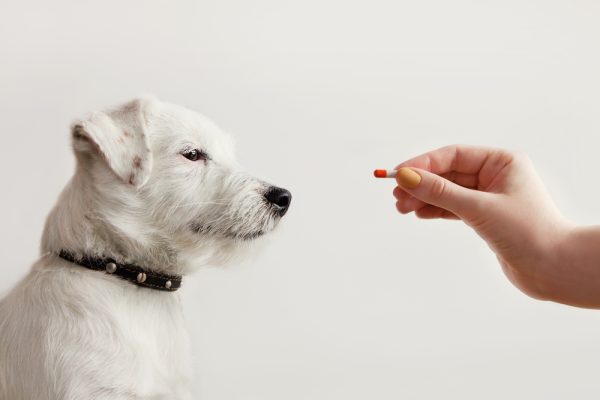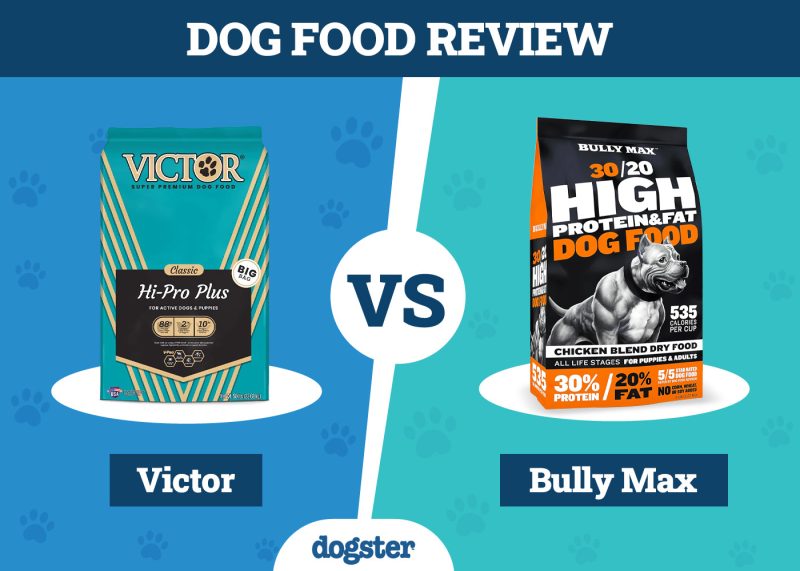In this article
View 8 More +The Border Collie Shetland Sheepdog, also known as the Border Sheepdog, is a hybrid breed resulting from pairing a Border Collie with a Shetland Sheepdog. These designer pups have a lot to offer prospective owners, but they aren’t necessarily a good fit for every family. Read on to learn more about the Border Sheepdog and decide if this breed would suit your lifestyle.
Breed Overview
Height:
16–22 inches
Weight:
15–55 pounds
Lifespan:
12–15 years
Colors:
Red, sable, red merle, white & black, blue merle, black
Suitable for:
Active families with older children, people with some experience owning dogs
Temperament:
Intelligent, active, playful, loving, friendly, affectionate
These dogs are highly active and can make fantastic companions for folks looking for a dog that’ll happily tag along on all their adventures.
Border Collie Shetland Sheepdog Characteristics

Border Collie Shetland Sheepdog Puppies
Prospective dog owners with hearts set on adopting a Border Sheepdog may have their work cut out for them. There aren’t many breeders focusing solely on this hybrid, but that doesn’t mean you won’t be able to find one. However, you might have better luck searching through your local rescue’s adoptable animals versus finding a breeder specializing in Border Sheepdogs.
When you find a puppy to adopt, you should know what you’re getting yourself into. There’s a reason that Border Collies are known as “land sharks” when they’re puppies, and if your Border Sheepdog takes after their Collie side more, you’ll learn precisely why. These pups may be nippier and more prone to biting than other puppies, but the key is to implement a training regimen and redirect them when such behaviors strike. These puppies will learn quickly, but they can be rather cheeky for the first few months.
Begin socializing and training your puppy as soon as possible. Although they may be high-strung and prone to skittishness, barking, and hyperactivity, training will help address such issues.
Border Collie Shetland Sheepdog Breed Origin & History
There isn’t much in terms of documented history about the origin of the Border Collie Sheepdog. However, we do know a fair bit about the parent breeds.
Border Collies originated in the Anglo-Scottish border separating Scotland and England. They were bred to herd sheep, a task at which they excel thanks to their strength, intelligence, and stamina.
Shelties originated in the Shetland Islands of Scotland. They were initially bred to be herding dogs, though many modern Shelties find work in many different sectors. They are sometimes used as medical alert dogs, as well as therapy and service dogs.

Temperament & Intelligence of the Border Collie Shetland Sheepdog 🧠
Pairing the temperament and intelligence of the Border Collie with a Shetland Sheepdog provides a dynamic and winning combination.
These dogs are even-tempered and highly affectionate toward their families. They’re eager to please and tend to form very tight bonds with their humans. This very social breed can be prone to separation anxiety, so they’re not suited for homes where they’re alone for the majority of the day.
The Border Sheepdog has a sensitive, sweet, and pleasant personality, especially if they take after their Sheltie side. Those favoring their Border Collie side may be highly driven and hard-working. They’re typically happiest when given a job to do or while playing, though they will generally settle down at the end of the workday for a snuggle.
Border Sheepdogs have an infinite source of energy and were not built to laze around the house all day long. They want to be where the action is, so if you decide this is the right breed for you, prepare for them to tag along with you wherever your adventures take you.
Border Collie Shetland Sheepdogs are brilliant dogs, with their parent breeds consistently scoring high in animal intelligence. In fact, Border Collies are generally considered the most intelligent dog breed of all, and Shetland Sheepdogs rank sixth out of 138 tested breeds.
However, there are some less-than-desirable traits of the Border Sheepdog you should also know about. These pups may be standoffish, shy, or even fearful around new people, especially if they haven’t been socialized enough. They may startle easily and appear high-strung in environments that are unpredictable or loud. Their strong herding instincts may make them inclined to “boss” other dogs around.
Are These Dogs Good for Families? 🏡
Border Collie Shetland Sheepdogs are absolutely fantastic family dogs, particularly in very active households that prioritize time outside. Nothing will make this pup happier than spending time in the great outdoors, going on hikes, exploring the neighborhood, and visiting the dog park.
These dogs can be fantastic playmates for older children—the keyword here is older. Homes with older kids are better suited for Border Sheepdog ownership as the older a child is, the more they understand and respect boundaries.
While these dogs aren’t great guard dogs, their loyalty and protective nature can make fantastic watchdogs. They’re not aggressive or overly territorial in most cases, but they will bark at the first sight of any unusual visual stimulation.
Border Sheepdogs are working dogs through and through, so they’re well suited to country living. This is not an apartment pet.
Does This Breed Get Along With Other Pets? 🐶 😽
Border Sheepdogs usually enjoy the company of other dogs. However, it will depend entirely on your dog’s personality and your commitment to socializing and training them. Some may see other dogs as threats and can be very territorial and vigilant, showing signs of dominance when other dogs are in their space. Their strong herding instincts may make them inclined to “boss” other dogs around.
Owners must understand the high energy levels and herding instincts of their Border Sheepdog. Their rambunctiousness can make them unsuitable for households with smaller dogs or puppies, and the same applies to cats. However, some Border Sheepdogs can get along well with cats, particularly those that they’ve grown up with.

Things to Know When Owning a Border Collie Shetland Sheepdog
Food & Diet Requirements 🦴
Choosing the right food for your Border Collie Shetland Sheepdog will depend on your dog’s life stage and activity level. You should feed them a food formulated for puppies when they’re under 18 months old, and as they age, switch them to adult maintenance food.
Your dog will likely be very active, so you should consider a commercial food with an increased protein content to support their energy needs. Those high in fatty acids like omega-3s can also promote coat and joint health.
As for feeding frequency, most puppies do best with three meals per day. Once they’re adults, you can switch them to twice-daily feedings if that suits your schedule better.
Border Collie Shetland Sheepdogs typically enjoy puzzle feeders as they cater to their high intelligence. These feeders are great for challenging your pup’s brain and providing the mental stimulation they require to stave off boredom.
We recommend speaking with your veterinary team to get recommendations on what diet will be best for your dog based on their lifestyle. They can also provide insight into how much to feed and how often.
Exercise 🐕
This hybrid is highly active, thanks to its parent breed herding history. They will require a bare minimum of one hour of exercise daily, but if your pup takes after their Border Collie side more, you’ll be looking at closer to two to three hours of vigorous exercise per day.
You don’t need to stick to walks to get your pup’s energy needs met, either. You can play fetch or frisbee with them, take them swimming, or allow them to tag alongside you on long hikes. Try putting them in dog sports like agility or flyball to see them shine. This hybrid is happiest when they feel they can serve a purpose, so getting them involved with herding activities is a fantastic thing to consider to meet their physical and mental requirements.
An under-exercised and under-stimulated Border Collie Shetland Sheepdog can become destructive and develop other problem behaviors like barking.
Training 🦮
Due to their high intelligence and eagerness to please, Border Collie Shetland Sheepdogs are very trainable dogs. As with any breed, however, early socialization and training are essential. The sooner you can get your dog trained, the easier it’ll be to help with their natural herding instincts. These instincts often manifest in a tendency to chase, which can be problematic when you’re out for walks or if you have other pets. This redirected herding instinct can sometimes get these pups in trouble when they choose to chase cars as they have no animals to herd.
Grooming ✂️
Your hybrid pup’s coat type will depend upon which parent they take after. However, you’ll want to have a set of grooming tools on hand to tend to your pup’s fur regardless of what coat type they wind up with. Pin brushes are a must-have as they can remove any dirt and debris your pup may collect outside while also removing their tangles and mats. Pet-safe wash wipes are also good to have to freshen them up when needed.
Border Collie Shetland Sheepdogs will have double coats that shed moderately. Double coats consist of dense and short undercoats and longer and harsher hairs on the outer portion. Brushing two or three times a week will be necessary to remove dead hairs and control shedding. While they shed all year round, these dogs “blow their coats” twice yearly, so be prepared for that.
Make a habit of checking the hair on the sides of their legs, under their elbows, and behind their ears, as these areas are prone to matting. However, you might want to take them to a professional groomer if their coat becomes too matted.
Your Border Sheepdog should be bathed just once every few months to keep their coat and skin in tip-top shape. Since overwashing can damage their beautiful coat, use a high-quality pet wipe in between baths if they get dirty on your adventures.
Health and Conditions ❤️
While Border Collie Shetland Sheepdogs may be healthier than their purebred counterparts, they can still be prone to some of the health conditions commonly seen in their parent breeds.
Both parents can be prone to hip dysplasia, collie eye anomaly, epilepsy, and blood disorders like hemolytic anemia or Imerslund-Gräsbeck Syndrome.
Border Collies may develop several genetic health issues, such as trapped neutrophil syndrome (TNS), a health issue that compromises their immune system. Neuronal ceroid lipofuscinosis (CL) is caused by a genetic mutation and can cause neurological signs such as blindness and seizures. They can also develop multi-drug resistance, a gene mutation commonly seen in collies and herding breeds. This can make your pup more sensitive to the adverse effects of some medications; however, genetic screening is available for this condition.
Shetland Sheepdogs can develop a skin condition known as “Sheltie skin syndrome” that can affect their muscles, skin, and blood vessels.
- Skin issues
- Eye issues
- Hip dysplasia
- Blood disorders
- Epilepsy
- Genetic health problems
- Multi-drug resistance

Male vs Female
There is no solid evidence that suggests male and female Border Collie Shetland Sheepdogs (or their parent breeds) have differences in temperament based solely upon their sex. However, there are tons of anecdotal reports online that suggest otherwise.
The main differences between female and male Border Sheepdogs are hormonally linked. Males may be more prone to marking behaviors and wandering, and females will go into heat if they’re not spayed.
Additionally, males may be slightly taller and weigh a smidge more than their female counterparts.
3 Little-Known Facts About the Border Collie Shetland Sheepdog
1. Both parent breeds hail from the Scotland area.
Border Collies originated in the Anglo-Scottish border region from the traditional sheepdogs that were once rampant on the British Isles. Shelties were first developed in the Shetland Islands, an archipelago in Scotland between Orkney, Norway, and the Faroe Islands.
2. Border Sheepdogs may not be suitable for first-time dog owners.
Border Collies are typically recommended for experienced dog owners as they have high physical and mental stimulation needs and require much time and patience for training and activity. If your Border Sheepdog takes after their demanding Border Collie parent, you may want to try your hand at dog ownership with a more easygoing breed, like the other parent breed, Shetland Sheepdogs.
3. The parent breeds look very similar.
Border Collies and Shetland Sheepdogs are similar-looking breeds, with the most significant difference being their size. Border Collies are typically between 18 and 22 inches tall and weigh between 30 and 55 pounds, while Shelties stand between 13 and 16 inches and weigh between 14 and 20 pounds.
Additionally, Shelties have longer and more pointy muzzles than their Border Collie counterpart.


Final Thoughts
The Border Collie Shetland Sheepdog is an adorable designer dog breed with many redeeming characteristics to offer prospective owners. However, this pup won’t be a great fit for every family.
The problem with hybrid dogs is that you won’t know which parent the puppies will take after. In this case, these two parent breeds have many similarities, but they’re very different in some aspects.
Border Collies are highly active dogs that thrive in environments where they have a job to perform. They take their role as herders very seriously, which is great if they live on a farm and can execute this job to the best of their ability. But it is less than ideal if their instincts kick in when they live in a home with small children or other animals.
Shelties are also very active dogs and can fit right in with active families. They, too, were born and bred herders, but they can typically control themselves around children or other animals.
If you live on a farm or in a home with a large backyard and have older children, the Border Sheepdog could be a fantastic fit for your family. It’s probably best if you have some experience with dog ownership if you choose to adopt this breed, as their high energy levels can make them a bit of a handful.
Featured Image Credit: navatu, Shutterstock





















